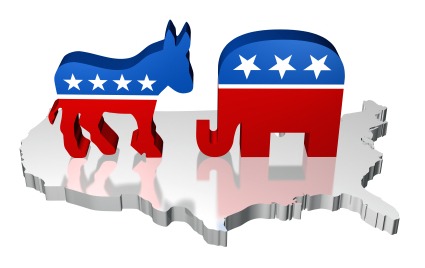Here’s how it really happened

How did we get here? Money. Money played a major role in the most misunderstood political party platform switch in U.S. history. The Republican Party of Abraham Lincoln is now the Democratic party. How? The first step was when influential Democrat William Jennings Bryan at the turn of the 20th century first blurred party lines emphasizing a larger government role in social justice, previously a Republican stance.
By the 1920s and 1930s, the Republican party abandoned big government and opposed Franklin Roosevelt’s New Deal in favor of banks, railroads, and manufacturers, over small-time farmers, turning off voters settling in the west. Republicans supported big government when it gave big business the advantage. Republicans supported smaller government when it gave big business the advantage.
Fast forward to present day and there is still much confusion about how money effects politics in the United States. For instance, not all lobbies are bad. The League of Women Voters is a powerful lobby that fights to protect fair and equitable elections. While the Freedom to Vote Act and For the People Act remain stalled in the Senate, the League launched a People Powered Fair Maps redistricting program to fight gerrymandering.
The League and nine diverse organizations under the CHARGE Hub advocate for increased transparency by holding hearings in every county and offering multi-lingual resources. This effort counters the usual redistricting process, which is often disproportionately inaccessible to Black, Indigenous, and communities of color.
Calling your representatives and protesting are a great start. But if you want to be involved directly in the redistricting process you can testify on maps before and after they are created! CHARGE Hub created a list of resources that explains gerrymandering and how to get involved. Also, the Campaign Legal Center has created a tool to help evaluate maps.
The League also supports reforms to shine a light on dark money and ensure that voters know who is trying to influence their votes, requiring campaigns and Super PACs to disclose who their donors are, and closing the door between politicians, lobbyists, and staffers. In the end, Democrats embrace Federal oversight of economic and social equality, and Republicans embrace smaller government in favor of big business.

Chicago native Lorraine Evanoff earned her degree in French from DePaul University then became a Certified Financial Manager. She worked as a finance exec in film production for seven years in Paris, then in Silicon Valley during the dot-com era, and later for various Hollywood production companies, notably as CFO of National Lampoon. She is currently living in Los Angeles with her husband.
